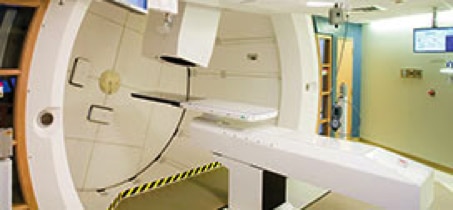

Proton therapy is a cancer treatment that targets tumors with high accuracy, allowing for favorable outcomes with a low risk of side effects. Since proton cancer treatment delivers less radiation to the healthy tissues surrounding a tumor than traditional radiation does, treatment complications may be fewer.
The University of Florida Health Proton Therapy Institute treats cancers of the breast, head and neck, base of the skull, eye, lung, sarcoma, pediatrics, prostate, pancreas, pituitary, central nervous system and Hodgkin lymphoma.
With the capability to effectively treat cancers of the prostate, lung, breast and bone – among others – UF Health Proton Therapy Institute leads the way for innovative cancer care in the Southeast U.S.
Some 6,000 patients have received proton therapy at UF Health Proton Therapy Institute’s campus in Jacksonville, Florida. A team of caring staff members, a commitment to successful outcomes, and the resources of a major non-profit academic medical center have made UF Health Proton Therapy Institute a leader in cancer treatment since 2006.
Proton Therapy for Cancer Treatment
Effective cancer treatment with a lower risk of severe side effects.
For patients facing many types of cancer, proton therapy offers an effective alternative to traditional radiation.
What makes proton radiation different?
Proton radiation can be directed to reach only the areas of the body that are affected by cancer. This leads to more accurate therapy, with less risk that healthy tissue will be exposed to radiation – and this can reduce the risk of complications and side effects.
Fewer treatment complications mean that physicians can deliver higher doses of proton radiation to cancer sites, and an increased dose of proton radiation can improve the chances for a successful outcome.
What is proton therapy?
An effective alternative to traditional radiation that targets tumors and cancer cells more precisely.
Proton therapy can deliver effective cancer treatment, with a low risk of side effects.
Targeted treatment is always important for cancer treatment, but it can be especially crucial for patients who have tumors in delicate areas of the body. For example, when patients with prostate cancer receive proton treatment, the bladder, rectum and other organs and tissue in the pelvic area receive less harmful radiation than they might with other treatments.
Children with cancer, patients with head and neck cancers, patients with cancer of the pancreas, breast and lung benefit from proton therapy in similar ways.
For more information go to www.floridaproton.org/what-is-proton-therapy
